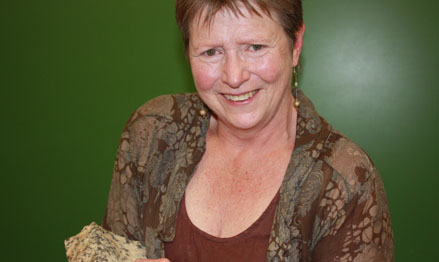Latest News Archive
Please select Category, Year, and then Month to display items
11 February 2022
|
Story Leonie Bolleurs and Rulanzen Martin
![]()

After two years of lockdown, online meetings, and limited contact with colleagues, academy at the University of the Free State (UFS) is gradually returning to normal. This month (February 2022), staff, students, and members of related industries will convene on three different occasions to learn about cutting-edge scholarship, to reconnect with each other, and to discuss issues impacting society in the fields of theology, the humanities, and agriculture.
Seminar on ‘The Limits of Decolonisation’ with Prof RW Johnson
Date: 24 February 2022
Time: 09:00-16:00 SAST
Venue/Platform: Equitas Auditorium, UFS Bloemfontein Campus, and Microsoft Teams
Decolonisation has been a heated point of discussion for some time now, but have you ever wondered if there could be limitations hindering the decolonisation project? The Departments of Political Studies and Governance and Philosophy and Classics at the UFS will host an array of academics and experts for a hybrid seminar on the topic The Limits of Decolonisation.
If decolonisation is an important issue for you or if you are interested in the topic and its relevance and influence in the world and academia, you should join or attend the seminar – either online via Microsoft Teams or in person in the Equitas Auditorium – on 24 February 2022 from 09:00.
The keynote speaker is political scientist
Prof RW Johnson from the University of Oxford. Prof Johnson is an emeritus fellow at Magdalen College and is the author of several acclaimed political books. The other speakers are all from the Departments of Political Studies and Governance, and Philosophy and Classics. Terrence Corrigan from the
South African Institute of Race Relations will speak on The relationship between critical race theory and decolonisation.
RSVP: Alice Stander StanderAFM@ufs.ac.za (please specify dietary requirements, as a light lunch will be served)

Prof Tredoux turns theories regarding the formation of metals on its head
2013-09-17
|
 |
|
Prof Marian Tredoux
17 September 2013 |
The latest research conducted by Prof Marian Tredoux of the Department of Geology, in collaboration with her research assistant Bianca Kennedy and their colleagues in Germany, placed established theories regarding how minerals of the platinum-group of elements are formed, under close scrutiny.
The article on this research of which Prof Tredoux is a co-author – ‘Noble metal nanoclusters and nanoparticles precede mineral formation in magmatic sulphide melts’ – was published in Nature Communications on 6 September 2013. It is an online journal for research of the highest quality in the fields of biological, physical and chemical sciences.
This study found that atoms of platinum and arsenic create nanoclusters, long before the mineral sperrylite can crystallise. Thus, the platinum does not occur as a primary sulphur compound. The research was conducted at the Steinmann Institute of the University of Bonn, Germany, as well as here in Bloemfontein.
Monetary support from Inkaba yeAfrica – a German-South African multidisciplinary and intercultural Earth Science collaborative of the National Research Foundation (NRF) – made this research possible. Studies are now also being conducted on other metals in the precious metal group, specifically palladium, rhodium and ruthenium.
The discovery of the nanoclusters and the combination with arsenic can have far-reaching consequences for the platinum mine industry, if it can be utilised to recover a greater amount of platinum ore and therefore less wastage ending up in mine dumps. This will signify optimal mining of a scarce and valuable metal, one of South Africa’s most important export products.
For Prof Tredoux, the research results also prove thoughts she already had some twenty years ago around the forming of platinum minerals. “Researchers laughed in my face, but the evidence had to wait for the development of technology to prove it.” Young researchers were very excited at recent congresses about the findings, since the new models can bring new insights.
“Chemistry researchers have been talking about platinum element clusters in watery environments for quite a while, but it was thought that these would not appear in magmas (molten rock) due to the high temperatures (>1 000 degrees celsius).”
Prof Tredoux has already delivered lectures at congresses in Scotland, Hungary, Sweden and Italy on this research.
Read the article at: http://www.nature.com/ncomms/2013/130906/ncomms3405/full/ncomms3405.html